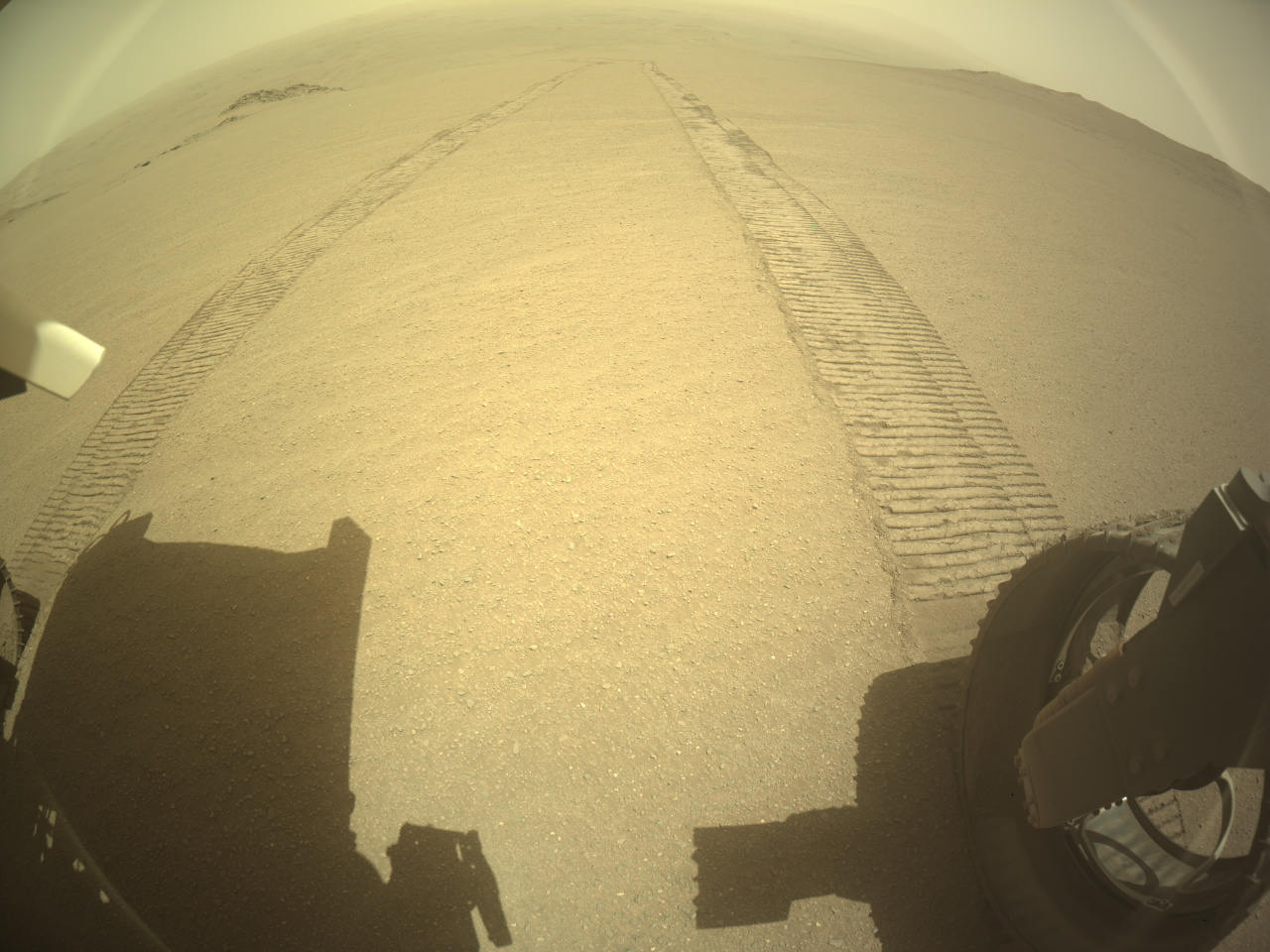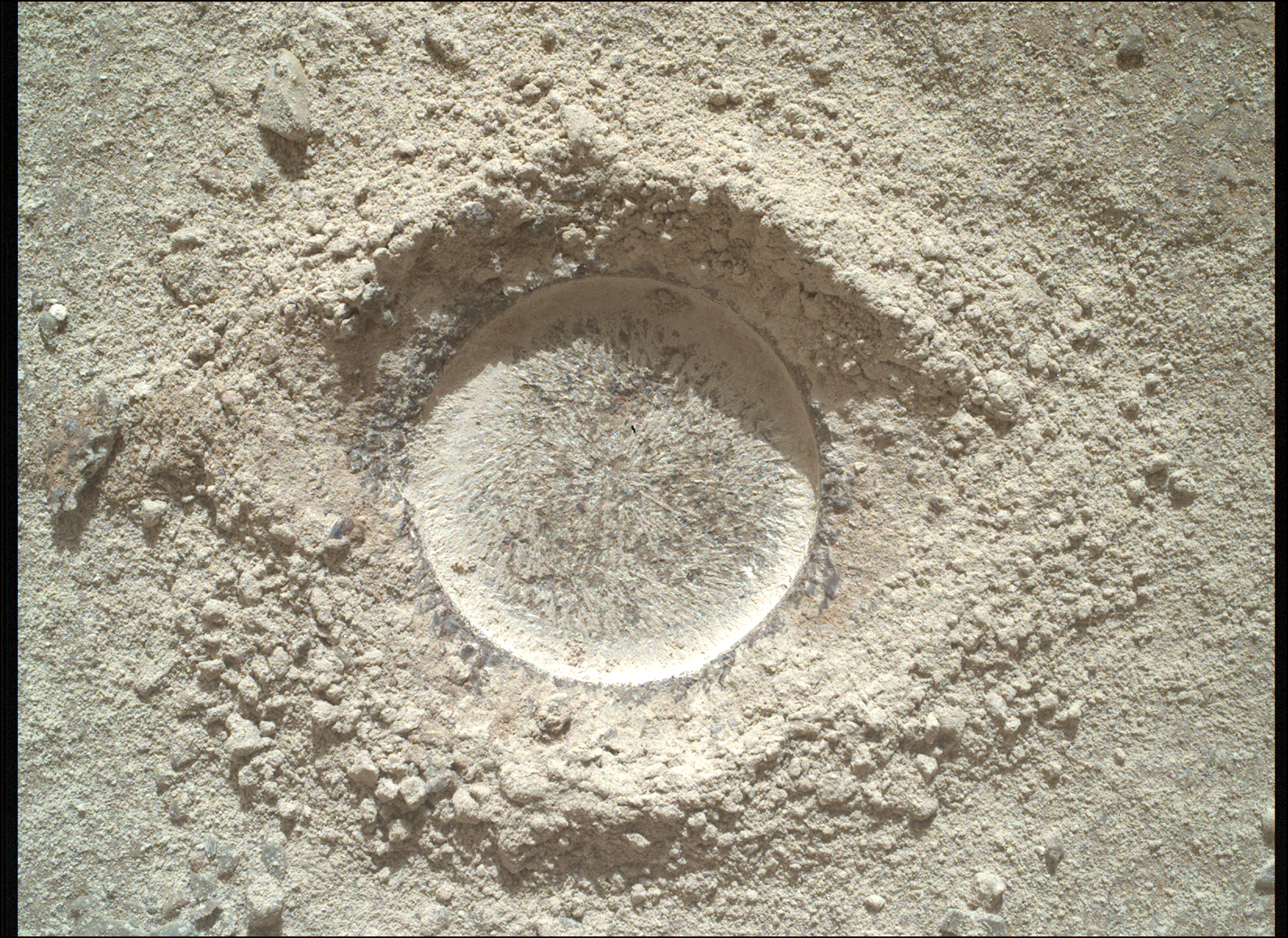- Perseverance Home
- Science
- News and Features
- Multimedia
- Mars Missions
- The Solar System
2 min read

At Pico Turquino, a bedrock mesa on the Jezero crater rim, the science and engineering teams planned proximity science on Percy's 30th abrasion patch, Rio Chiquito. SCAM and ZCAM characterized the rock near the abrasion, while SHERLOC and PIXL instruments were deployed for proximity science. The data from Rio Chiquito will help characterize the Pico Turquino area in addition to helping scientists understand the broader story and complex geologic history of Jezero crater.

After reaching the 30th abrasion milestone, Percy - along with the rover team back on Earth - took a couple of sols of much-deserved break over the Thanksgiving holiday before getting back to work.
Percy has since left Pico Turquino and has started moving to the next geologically significant stop, called Witch Hazel Hill. There is also a planned stop along the way near the highest point of the crater rim that the rover will traverse, a locale aptly named "Lookout Hill" where we will get outstanding views of both the interior of Jezero crater and the surrounding landscape, as if in a lookout tower. The path to get to these stops is mostly covered in regolith (soil) and lacks interesting rock outcrops, so the team's focus over the next few weeks is on making and monitoring drive progress. As the rover drives, however, it will still have science cameras trained on interesting rock outcrops in the far distant hills to gather additional clues about the rocks that make up the Jezero crater rim.
Personally, I can't wait for our stop at Lookout Hill, the apex of the crater rim, to see some gorgeous views inside and outside of Jezero from one of the highest spots around! Along with analyzing other returned data while Percy progresses toward Witch Hazel Hill, we'll be anxiously scanning our post-drive images to look out for Lookout Hill coming into view
Written by Eleanor Moreland, Ph.D. student collaborator at Rice University



.JPG?w=1024&h=1024&fit=clip&crop=faces%2Cfocalpoint)





